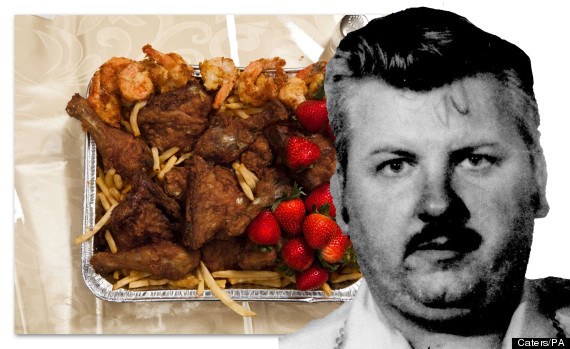The Last Meal Test of Innocence
 |
Source: huffingtonpost.co.uk
Convicted serial killer John Wayne Gacy asked for fried chicken, shrimp, chips and strawberries for his last meal before execution. |
Those who deny guilt are 2.7 times more likely to decline a last meal than those who admit guilt.
 |
| Suggested Reading Click on image |
Similarly, in a documentary film about last suppers, Swedish artists Bigert and Bergstrom claimed a connection between whether or not an individual chooses to have a last meal and his or her guilt. In each case, there is an assertion that last meals are relevant to the legitimacy of an execution. It is these signals that Cornell University researcher Kevin Kniffin examined in this self-funded study. In particular, he studied whether an individual who has accepted guilt -- by apologizing or confessing -- is more likely to indulge in a last meal. He also looked at how their meals differ from those who maintain that they are innocent.
Kniffin hypothesized that those who perceived themselves as innocent would request fewer calories or decline to receive a last meal altogether. After analyzing the last meals of 247 people who were executed in the United States between 2002 and 2006, Kniffin found the hypothesis to be accurate. Those who denied guilt were 2.7 times more likely to decline a last meal than those who admitted guilt. Furthermore those who were admittedly guilty requested 34% more calories of food and were more likely to request brand name, comfort-food items.
Social circumstance often gives meals meaning, so it is logical that the last meals of those on death row may signify something beyond taste preference. While there are many factors that could contribute to last meal selection, this study is the first to provide evidence of a link between food selection and self-perceived guilt or innocence. These findings may be useful to the legal community in further assessing the innocence and perceived innocence of those who have received the death penalty in the past.
* * * * *
Story Source: Based on materials provided by Cornell Food & Brand Lab.
Journal Reference: Kevin Kniffin, Brian Wansink. Death Row Confessions and the Last Meal Test of Innocence. Laws, 2013
Comments
Post a Comment